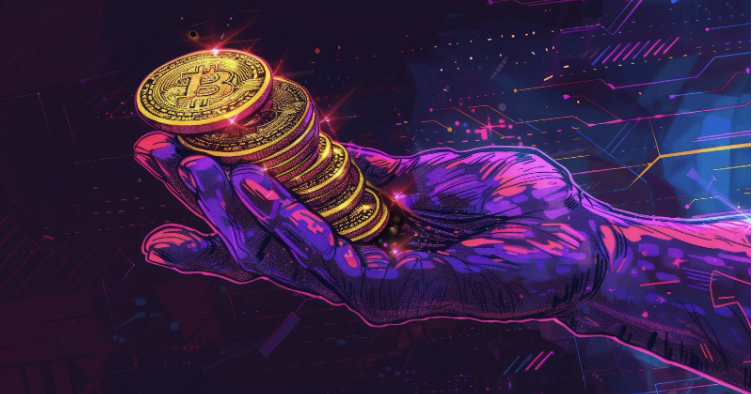Decentralized casinos – blockchain’s role in fair play and player ownership

Online casinos have come a long way since their early days, and it has always been fun and exciting. The rush of winning big is what drives players to online casinos in the hope that it will change their lives forever. One question that every player has asked at some point: Can I really trust the casino system?
For years, transparency and fairness were challenges in the world of gambling. Players have had to rely on casino operators without any real way to verify the authenticity of the outcomes. However, with blockchain technology, things are changing fast.
In this article, we will explore more about decentralized casinos and how they are redefining the gambling world. And what experts like Emiliana Rostowicz from GHZD have to say about it.
What are Decentralized Casinos?
A decentralized casino runs on blockchain technology, which is a public digital record or ledger that records every transaction. In a traditional online casino, all the data and money go through a centralized authority, and you have to trust that everything is honest.
But in a decentralized casino, there is no third-party company controlling the results or handling your money behind closed doors. Every game, bet, and payout is recorded, so it’s all transparent and fair.
Players can verify every move themselves, ensuring complete fairness and making it impossible to manipulate results. To explore trusted platforms offering decentralized casino experiences in Poland, check out https://gry-hazardowe-zadarmo.com/kasyno-online/, where you’ll find licensed operators ranked based on security, gameplay, games, and more.
The Problem with Traditional Casinos
Before blockchain entered the scene, online casinos had several weak spots that players often raised. And these are marked as some of the major problems at traditional casinos:
• Lack of transparency: Players can’t prove if the games are really fair.
• Trust issues: The casino decides when and how to pay you.
• High fees: Some casinos delay payments or charge big fees.
• Data control: Personal details and money stored in their system are vulnerable to hacking.
While gambling is exciting, these issues can disrupt a player’s confidence and also make it difficult to build long-term relationships with operators.
How Blockchain Makes it Fair?
As mentioned before, blockchain is like an open book that everyone can see, but no one can secretly manipulate the data. Here’s how it helps in casinos:
1. Smart contracts: They are automatic computer programs that run casino games and other casino functions. Once coded and deployed, no one can change the rules, not even the casino owners.
2. Transparency of Data: Every transaction, from placing bets to receiving payouts, is recorded on the blockchain. The best part about it is that anyone can view it themselves in real time. This means that there are no hidden house tricks or cheating.
3. Blockchain RNG: Traditional casinos rely on centralized RNG systems, whereas decentralized casinos use trusted third-party sources to generate unpredictable outcomes.
This is what it means to be fair, where you can prove it and not blindly believe it.
Player Ownership and Casino Tokens
One of the most revolutionary aspects of decentralized casinos is player ownership. Players can buy or earn casino tokens and can actually hold a stake in the casino’s ecosystem.
These casino tokens serve multiple purposes, such as:
• Profit sharing: gives you a share of the profits from the platform.
• Voting rights: Players can vote on new games, system changes, or even marketing decisions.
• Exclusive rewards: They can be used to claim special bonuses and rewards.
This shift makes players more than mere participants but active stakeholders. According to Emiliana Rostowicz, ownership through tokens not only increases loyalty but also helps them connect with the platform better.
Privacy and Security
In most online casinos, you need to share your personal details like name, card details, and even your ID card, which can be risky. Blockchain-based casinos make all the transactions through crypto wallets, where no personal data is stored.
Players can stay anonymous and still benefit from the technology, such as faster transactions, lower payout fees, etc. Since your funds are held in smart contracts, players don’t need to worry about their winnings as the payouts happen automatically when the game result is confirmed.
Challenges and Concerns with Blockchain
As great as it sounds, there are some challenges that players may face.
• Legal gray areas: crypto gambling regulations vary from country to country.
• Tech confusion: New players might find crypto wallets complicated.
• Crypto price swings: If you win in cryptocurrency, the value might rise or drop according to the market.
• Fake platforms: Since they are decentralized, some platforms dupe players.
Rostowicz emphasizes that players should stick with trusted names and do their own due diligence before choosing a gambling operator.
Conclusion
Decentralized casinos have been gaining a lot of attention and are now changing the game. They make gambling more transparent, secure, and player-friendly.
Players further don’t just hope for fair play but see that in the game. They also have more control through casino tokens, which improves loyalty. Emiliana says it best: fair play is no more about the casino but the tech used behind it. And that’s the future of gambling.
